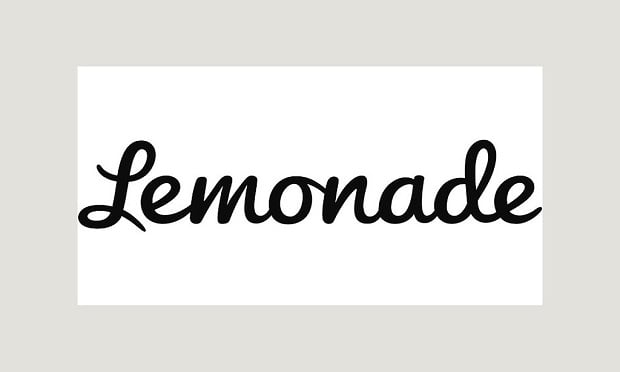 J.D. Power: Lemonade's recipe for stratospheric growth has left a bitter taste in the mouths of some insurance customers.
J.D. Power: Lemonade's recipe for stratospheric growth has left a bitter taste in the mouths of some insurance customers.
Lemonade, the New York City-based InsurTech, made a splash in the insurance industry this year, first becoming the best IPO debut of the year after gaining 140% on its first day of trading in July, and now earning the top spot among renters insurance providers in J.D. Power's annual U.S. Home Insurance Study in its first year of eligibility.
Recommended For You
Want to continue reading?
Become a Free PropertyCasualty360 Digital Reader
Your access to unlimited PropertyCasualty360 content isn’t changing.
Once you are an ALM digital member, you’ll receive:
- Breaking insurance news and analysis, on-site and via our newsletters and custom alerts
- Weekly Insurance Speak podcast featuring exclusive interviews with industry leaders
- Educational webcasts, white papers, and ebooks from industry thought leaders
- Critical converage of the employee benefits and financial advisory markets on our other ALM sites, BenefitsPRO and ThinkAdvisor
Already have an account? Sign In Now
© Touchpoint Markets, All Rights Reserved. Request academic re-use from www.copyright.com. All other uses, submit a request to [email protected]. For more inforrmation visit Asset & Logo Licensing.







